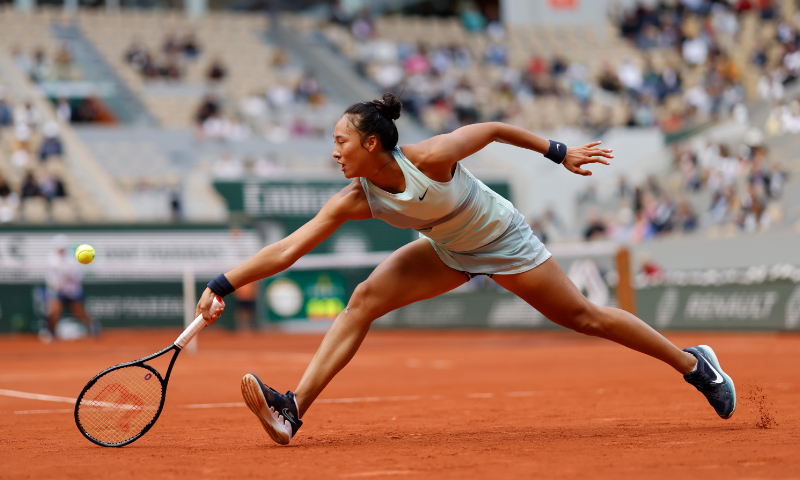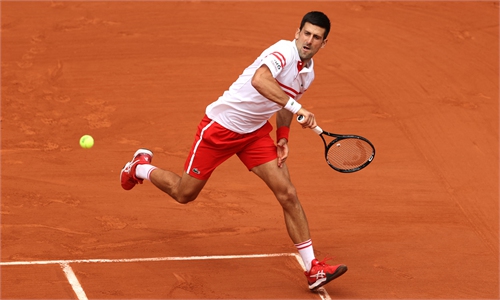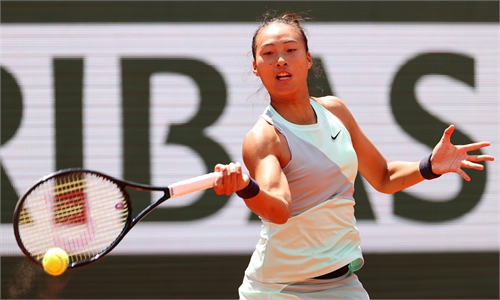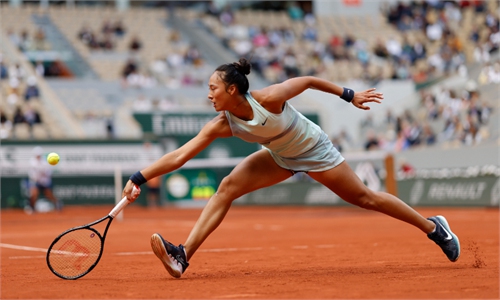SPORT / TENNIS
Dream run of Chinese young star ends at the French Open

China's Zheng Qinwen returns the ball to Poland's Iga Swiatek during their fourth-round match of the French Open tennis tournament on May 30, 2022, in Paris. Photo: VCG
Rising Chinese tennis star, Zheng Qinwen, had her dream run at the French Open snapped on Monday, losing to top seed and 2020 Roland Garros winner, Iga Swiatek 7-6 (7/5), 0-6 and 2-6 in two hours and 45 minutes.
The 19-year-old Zheng, currently ranking 74th in the world, lost the opening three games of the first set but clawed her way back by claiming the next three. Having saved five set points and trailing 2-5 in the tiebreaker, she claimed five consecutive points to win the first set, becoming the first player at the tournament to take a set from Swiatek, the only top-10 seed left in the fourth round.
Having lost the first three games again in the second set, Zheng took a medical timeout to get treatment on her right thigh. However, the bandage clearly did not help as she lost the set 0-6.
Zheng removed the bandage herself at the beginning of the third set but failed to get her mojo back as her Polish opponent extended her winning streak to the 32 matches.
"She played amazing tennis," Swiatek said of her Chinese opponent after reaching the last eight.
"I was surprised with some of her shots, her top spin was amazing. Huge congrats to her."
Zheng made her WTA Tour debut in July 2021 in Palermo, Italy. She played her maiden Grand Slam at the Australian Open in January 2022, where she lost to fifth seed Maria Sakkari in straight sets. She broke into the world's top 100 for the first time afterward, ranking 80th.
At the ongoing French Open, after defeating Ukrainian-Belgian Maryna Zanevska on her Roland Garros debut, Zheng knocked out former world No.1 and 2018 French Open winner, Romanian Simona Halep, in the second round. She reached the last 16 after local favorite Alize Cornet retired with injury while Zheng was leading 6-0, 3-0 in the third round.
Zheng is the fourth Chinese woman to have reached the last 16 at the French Open after 2011 champion Li Na, Zheng Jie and Zhang Shuai.



